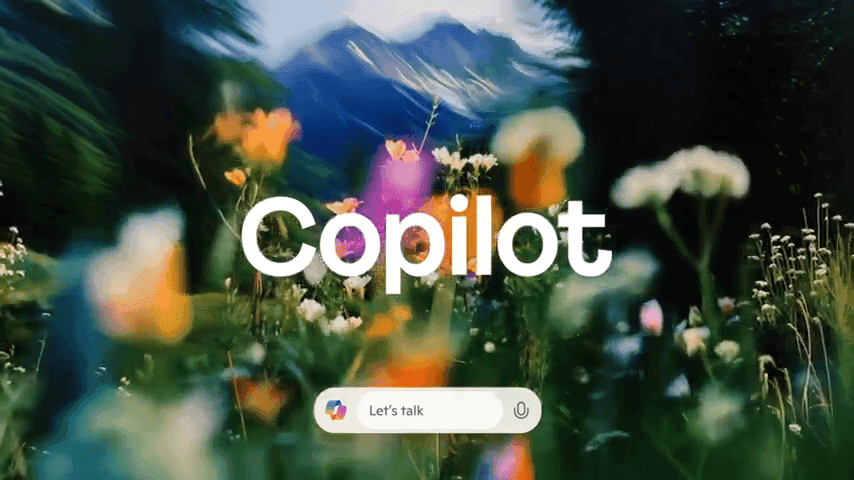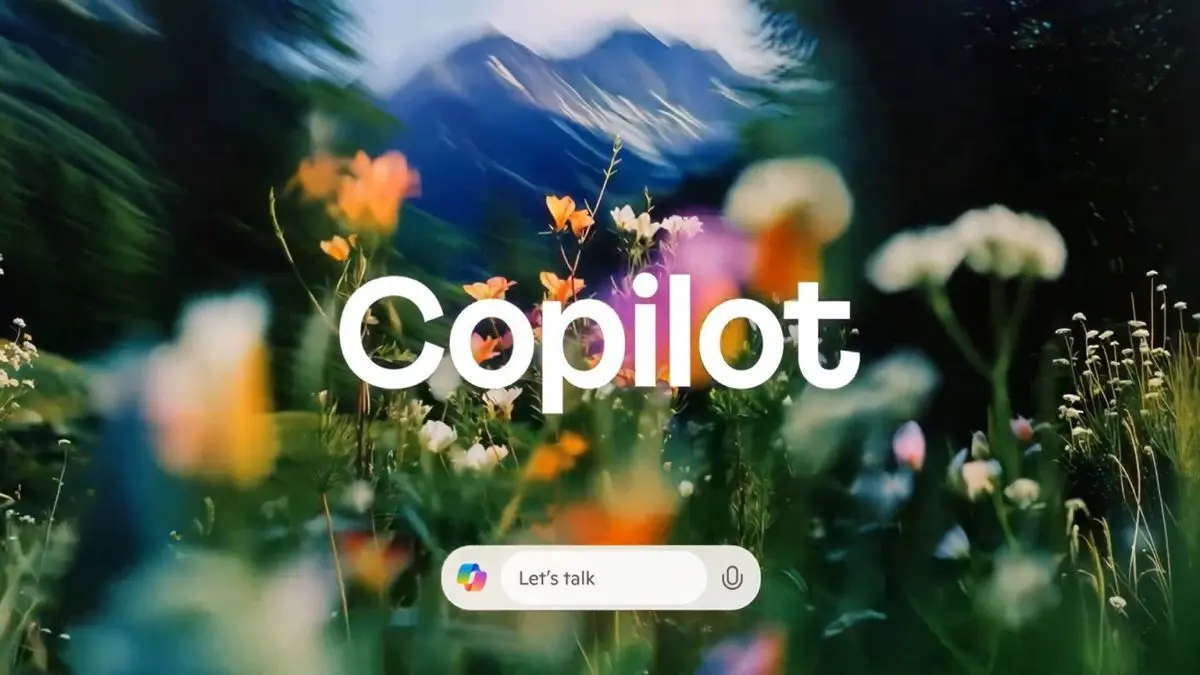Microsoft's Copilot Struggles to Gain Traction as ChatGPT Dominates AI Assistant Market
2 Sources
2 Sources
[1]
Consumers make their voices heard as Microsoft's huge venture flatlines in popularity
Summary Microsoft Copilot only attracts 20 million users a week, failing to gain traction Competitor ChatGPT has 400 million weekly users, overshadowing Copilot's growth Microsoft risks losing investments in AI with Copilot's stagnation and lack of user interest In January 2024, we saw Microsoft begin to change gears. After sitting on the sidelines in the AI war, the company began to slowly, but surely, develop its Copilot assistant into an artificial intelligence using LLM technology. Fast forward today, and Microsoft has offered us the works: Copilot Pro subscription plans, Copilot+ devices with NPU built in, and a dedicated Copilot key on the keyboard. We've also seen the AI assistant pop up in all kinds of apps, from the Office suite to Edge. There's just one problem: nobody cares. Or, more accurately, not as many people care as Microsoft would like. A recent report put the general public's Copilot usage into perspective, and if things continue, there's a chance that the entire venture will hit a dead end soon. Microsoft Copilot attracts "only" 20 million users a week, and it's not going up As reported by Newcomer, Microsoft Copilot isn't doing as well as the company would like. The Redmond giant has invested billions of dollars and a lot of manpower into making it happen, but as a recent report claims, people just don't care. In fact, if the report is to be believed, Microsoft's rise in the AI scene has already come to a screeching halt: At Microsoft's annual executive huddle last month, the company's chief financial officer, Amy Hood, put up a slide that charted the number of users for its Copilot consumer AI tool over the past year. It was essentially a flat line, showing around 20 million weekly users. On the same slide was another line showing ChatGPT's growth over the same period, arching ever upward toward 400 million weekly users. OpenAI's iconic chatbot was soaring, while Microsoft's best hope for a mass-adoption AI tool was idling. It was a sobering chart for Microsoft's consumer AI team and the man who's been leading it for the past year, Mustafa Suleyman. That's right; Microsoft Copilot's weekly user base is only 5% of the number of people who use ChatGPT, and it's not increasing. It's also worth noting that there are approximately 1.5 billion Windows users worldwide, which means just over 1% of them are using Copilot, a tool that's now a Windows default app. This is quite scary from Microsoft's point of view, which has put so much effort and money into its AI ventures that it really cannot afford for its business to dwindle out so soon. It's not a huge surprise that Copilot is faltering. Despite Microsoft's CEO claiming that Copilot will become "the next Start button", the company has had to backtrack on the Copilot key and allow people to customise it to do something else, including giving back its original feature of the Menu key. And earlier today, Intel just flat-out admitted that its AI hardware isn't shifting. Companies have made a huge gamble on users wanting AI to rule their computers, and unfortunately, it appears that they're about to lose it all.
[2]
It seems like most Windows users don't care for Copilot
Copilot, Microsoft's AI assistant, appears to be struggling to match its competition in terms of popularity. The number of people using Copilot has remained around 20 million weekly users for the last year, according to tech newsletter Newcomer, while OpenAI's ChatGPT has hit as high as 400 million weekly users. The data was shared at an annual executive meeting in March by Microsoft's chief financial officer Amy Hood, Newcomer reports, and raise some concerns about the AI future Microsoft is pitching. Microsoft uses OpenAI's models to power Copilot, and the assistant offers similar features to ChatGPT, but they clearly don't draw the same interest from users. The company has also built Copilot into Windows 11, Microsoft 365 and the Edge browser, without apparently reaping the benefit of additional user growth. The need to revamp Copilot, become less dependent on OpenAI and reimagine the company's assistant as a true consumer product were Microsoft's motivations for acqui-hiring Mustafa Suleyman and his team from Inflection AI. Suleyman's work as CEO of Microsoft AI has culminated so far in a redesign of Copilot, and the launch of several new features, including the ability for the AI to take action for you in certain websites. It's maybe the start of a cohesive vision, but not one that's immediately connected with Windows users or anyone else. Microsoft invested billions in OpenAI to aid the company's research and gain privileged access to its models, all in the hopes of competing with Google. Even with that access, ChatGPT arriving first seems to have had the biggest impact on turning people into AI users. ChatGPT was the AI assistant people tried first, and it's not clear what new Copilot feature will pull them away.
Share
Share
Copy Link
Microsoft's AI assistant Copilot fails to attract users, with only 20 million weekly users compared to ChatGPT's 400 million, despite significant investment and integration efforts.

Microsoft's AI Ambitions Hit a Roadblock
Microsoft's grand venture into the world of artificial intelligence with its Copilot assistant appears to be faltering, as recent reports reveal a stark contrast between its user base and that of its competitor, ChatGPT. Despite significant investments and integration efforts, Copilot has failed to capture the imagination of consumers, potentially jeopardizing Microsoft's position in the AI race.
Copilot's Stagnant Growth
According to a report by Newcomer, Microsoft's chief financial officer Amy Hood presented alarming statistics at the company's annual executive meeting. The data showed that Copilot's weekly user base has remained stagnant at around 20 million users over the past year
1
. This figure pales in comparison to ChatGPT's soaring popularity, which has reached approximately 400 million weekly users1
2
.Integration Efforts Fall Short
Microsoft has made considerable efforts to promote Copilot, integrating it into various products:
- Windows 11 operating system
- Microsoft 365 suite
- Edge browser
- Dedicated Copilot key on keyboards
- Copilot Pro subscription plans
Despite these initiatives, Copilot has failed to gain significant traction. With approximately 1.5 billion Windows users worldwide, Copilot's 20 million weekly users represent just over 1% of the potential user base
1
.ChatGPT's Dominance
The stark contrast between Copilot and ChatGPT's user numbers highlights the challenges Microsoft faces in the AI assistant market. ChatGPT's early arrival and widespread adoption have made it the go-to AI assistant for many users, making it difficult for Copilot to carve out its niche
2
.Microsoft's Response
Recognizing the need for a fresh approach, Microsoft has taken several steps to revitalize its AI efforts:
- Acqui-hired Mustafa Suleyman and his team from Inflection AI
- Redesigned Copilot's interface
- Launched new features, including the ability for AI to take action on certain websites
2
Related Stories
Industry Implications
Microsoft's struggles with Copilot raise questions about the broader AI industry:
- The importance of first-mover advantage in the AI space
- The challenge of differentiating AI assistants in a crowded market
- The potential overestimation of consumer demand for AI-integrated products
Intel's recent admission that its AI hardware isn't selling as expected further underscores the industry-wide challenges in meeting projected AI demand
1
.Future Outlook
As Microsoft continues to invest heavily in AI, the company faces a critical juncture. The success of Copilot is crucial for Microsoft to justify its billions of dollars in investments and to maintain its competitive edge in the tech industry. The coming months will likely see increased efforts to differentiate Copilot and attract users away from established competitors like ChatGPT.
References
Summarized by
Navi
[1]
Related Stories
Microsoft's Copilot Struggles to Compete with ChatGPT Despite Massive Investment
17 Jul 2025•Technology

Microsoft Faces Uphill Battle as Copilot Struggles Against ChatGPT in Enterprise Market
25 Jun 2025•Business and Economy

Microsoft Copilot reaches 15 million paid seats, but only 3.3% of users are actually paying
10 Feb 2026•Business and Economy

Recent Highlights
1
Google Gemini 3.1 Pro doubles reasoning score, beats rivals in key AI benchmarks
Technology

2
Meta strikes up to $100 billion AI chips deal with AMD, could acquire 10% stake in chipmaker
Technology

3
Pentagon threatens Anthropic with supply chain risk label over AI safeguards for military use
Policy and Regulation





